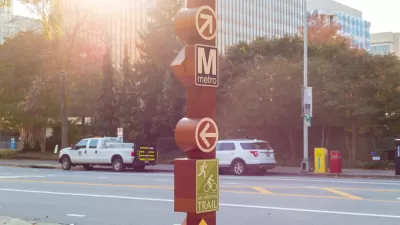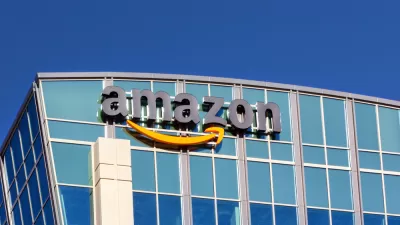A collection of media coverage since the decision examines how Arlington will achieve its goals now that it voted to end funding for a $333-million plan to build a 7.4-mile streetcar line down Columbia Pike.
Writing for the Washingtonian, Benjamin Freed describes the streetcar's political failure as the result of a "series of expensive misfires [that] spoiled the model suburb’s appetite for big, important projects." Freed, however, argues that due to the expected growth of residents in the county, Arlington "can’t afford to lose its nerve for big projects."
In a separate article for Leesburg Today, Owen Britton provides a dispatch from a November 19 forum on the future of Columbia Pike, in which two County Board members who voted to rescind the streetcar project, Jay Fisette and Libby Garvey, were on hand to begin the work of picking up the pieces from the failed plan. Britton's coverage quotes Mary Rouleau, who heads the Alliance for Housing Solutions, who "voiced concern that demise of the streetcar plan, and the economic development that had been anticipated with its arrival, could cause a crushing blow to efforts to retain affordable housing in the Columbia Pike corridor." Britton explains that "Arlington officials are aiming to retain the net 6,200 units of affordable housing on the Pike, largely through incentives to developers to provide additional affordable units in place of those that are sure to be razed."
Writing for CityLab, Eric Jaffe expresses optimism about the potential for a bus rapid transit line down Columbia Pike. In fact, reports Jaffe, Arlington already evaluated an "enhanced-bus line" as an alternative to the streetcar back in 2012. Jaffe details the differences in service and cost between the two proposals.
FULL STORY: Arlington Killed the Columbia Pike Streetcar, But It Still Has to Plan for the Future

Planetizen Federal Action Tracker
A weekly monitor of how Trump’s orders and actions are impacting planners and planning in America.

Restaurant Patios Were a Pandemic Win — Why Were They so Hard to Keep?
Social distancing requirements and changes in travel patterns prompted cities to pilot new uses for street and sidewalk space. Then it got complicated.

Map: Where Senate Republicans Want to Sell Your Public Lands
For public land advocates, the Senate Republicans’ proposal to sell millions of acres of public land in the West is “the biggest fight of their careers.”

Maui's Vacation Rental Debate Turns Ugly
Verbal attacks, misinformation campaigns and fistfights plague a high-stakes debate to convert thousands of vacation rentals into long-term housing.

San Francisco Suspends Traffic Calming Amidst Record Deaths
Citing “a challenging fiscal landscape,” the city will cease the program on the heels of 42 traffic deaths, including 24 pedestrians.

California Homeless Arrests, Citations Spike After Ruling
An investigation reveals that anti-homeless actions increased up to 500% after Grants Pass v. Johnson — even in cities claiming no policy change.
Urban Design for Planners 1: Software Tools
This six-course series explores essential urban design concepts using open source software and equips planners with the tools they need to participate fully in the urban design process.
Planning for Universal Design
Learn the tools for implementing Universal Design in planning regulations.
Heyer Gruel & Associates PA
JM Goldson LLC
Custer County Colorado
City of Camden Redevelopment Agency
City of Astoria
Transportation Research & Education Center (TREC) at Portland State University
Camden Redevelopment Agency
City of Claremont
Municipality of Princeton (NJ)




























